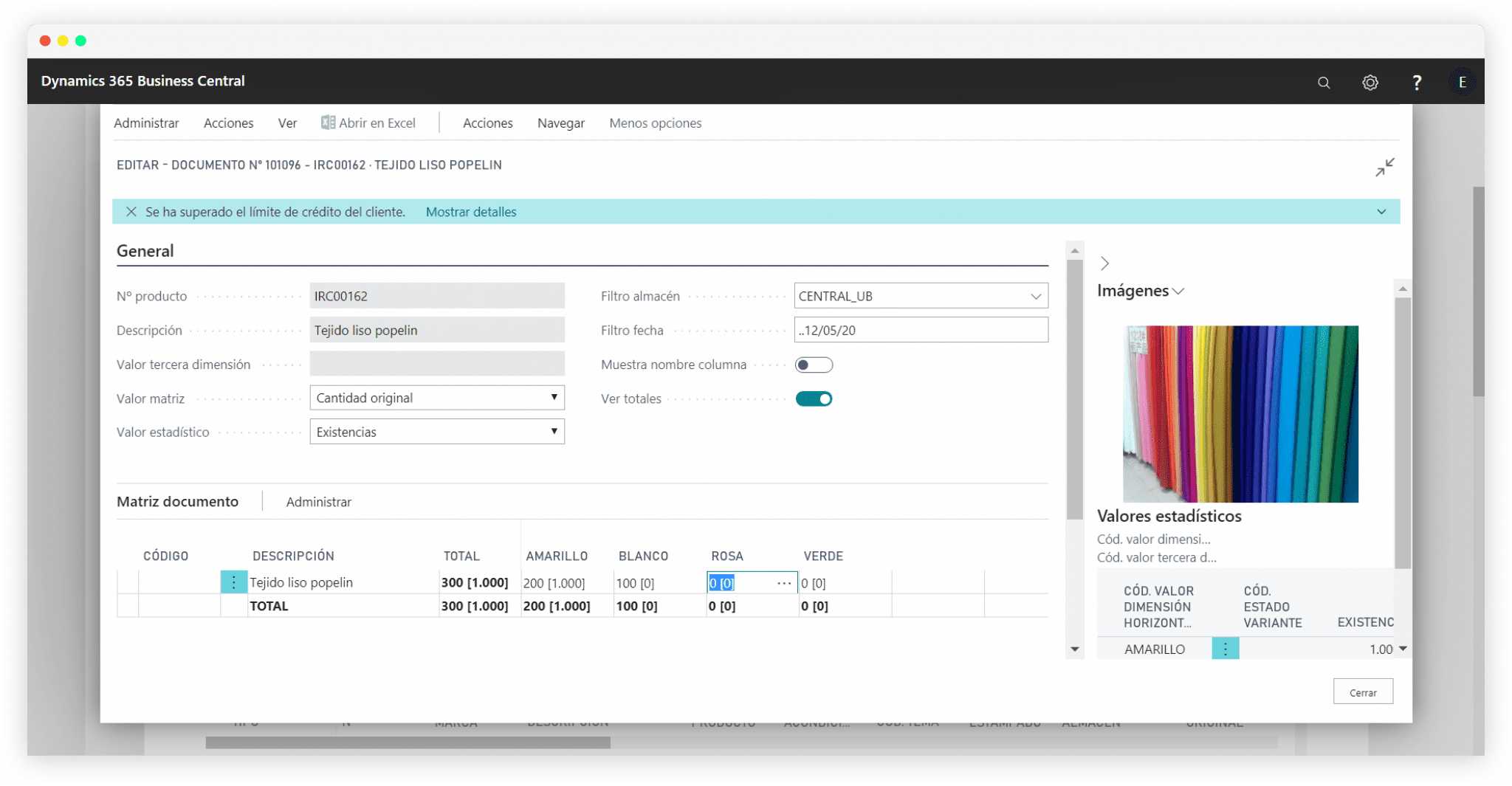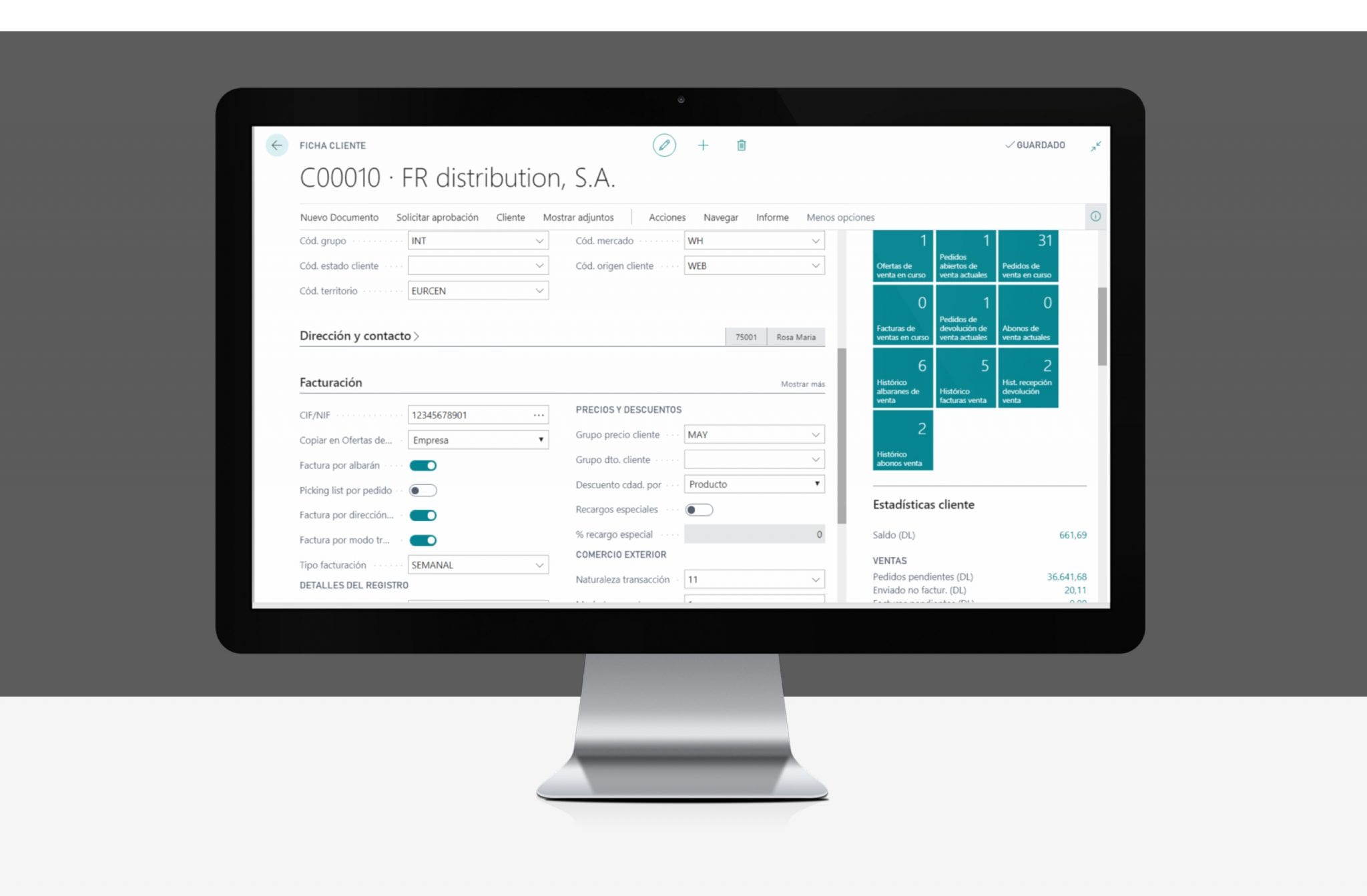Challenges
- To have a specific solution for the textile sector.
- To work with a modern ERP that allows the company to adapt to the pace of growth and internationalisation.
- To have a technological partner specialised in the sector.
- To have the capacity to control all processes from a single platform, especially the production and manufacture of fabrics.
- The possibility of analysing information from each of the areas in order to make decisions.
- Modernisation of office automation services.
Solutions
- Implementation of Ekatex, our textile vertical for the integral management of the business.
- Adaptations of the textile vertical according to the requirements of Gratacós, focused on the need to control production, references and all associated costs.
- Integration of the ERP with the company's own commercial network.
- Commitment to infrastructure in Azure, Microsoft's cloud.
- Microsoft 365 in the cloud as work tools.

Textile ERP implementation
Due to the growth and expansion of Gratacós, the previous software was obsolete and prevented the management of the new business areas.
From Cuatroochenta's business management software area, the first step was to analyse the situation and the client's needs, in order to plan the project while taking into account all the required customisations.
We developed and adapted our textile software and integrated it with Business Central in order to offer Gratacós an end-to-end ERP adapted to their business processes.
Main functions
Agile management and classification of references and technical data associated with the fabric thanks to the matrix management of variants and attributes.
Total control of the manufacturing process, accessing the details of all the costs associated with each reference, as well as the possible wastage that may occur during manufacture.
Calculation of raw material needs based on production and expected sales.
Monitoring and management of sales made to each type of customer.
Advanced analysis of best-selling references and recurring customers.
Training sessions for the main users of the ERP, both the standard and the vertical solution for textiles.
Once the ERP has been implemented, support for technical incidents and analysis of continuous improvements.

Results
Agility in the management of all available references thanks to the customisable variable matrix.
Complete traceability of the status of all products in real time.
Exhaustive control of inventory and possible shrinkage.
Optimisation of future production decisions by being able to extract real information to predict sales and trends.
The ERP allows the automation of complex tasks such as the settlement of commissions for the sales team.

“I would recommend Ekatex to any company in the textile industry because it covers all the processes of a textile company.”
Antonio Gratacós, managing director of Gratacós.